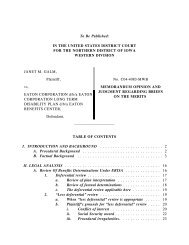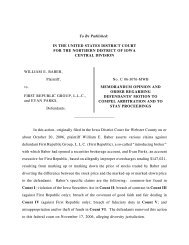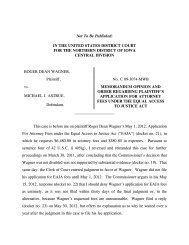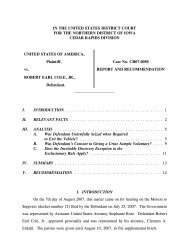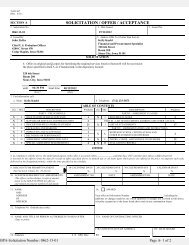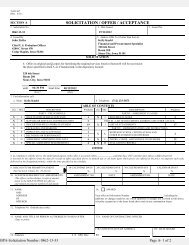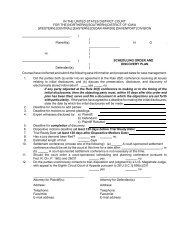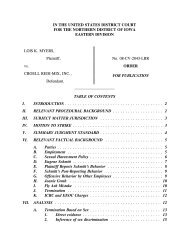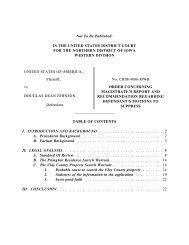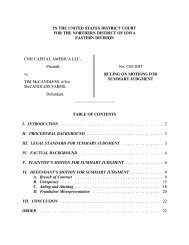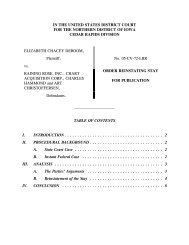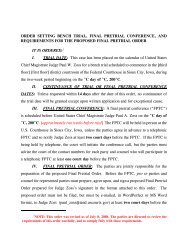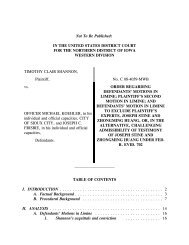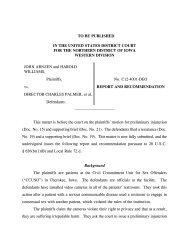IN THE UNITED STATES DISTRICT COURT FOR THE NORTHERN ...
IN THE UNITED STATES DISTRICT COURT FOR THE NORTHERN ...
IN THE UNITED STATES DISTRICT COURT FOR THE NORTHERN ...
You also want an ePaper? Increase the reach of your titles
YUMPU automatically turns print PDFs into web optimized ePapers that Google loves.
States and, in the event of abuse, a “moderate or low physical dependence or high<br />
psychological dependence.” Id. § 812(b)(3). Schedule IV substances have a smaller risk<br />
for potential abuse than Schedule III substances, an accepted medical use and, if abused,<br />
“may lead to limited physical dependence or psychological dependence relative to the<br />
drugs or other substances in schedule III.” Id. § 812(b)(4).<br />
Section 841 of the CSA provides: “it shall be unlawful for any person knowingly<br />
or intentionally [. . .] to manufacture, distribute, or dispense, or possess with intent to<br />
manufacture, distribute, or dispense, a controlled substance[.]” Id. § 841(a)(1). However,<br />
a person may lawfully distribute or dispense a controlled substance by issuing a<br />
“prescription,” which is “an order for medication which is dispensed to or for an ultimate<br />
user[.]” 21 C.F.R. § 1300.01(b)(35). Section 1306.04(a) sets forth the parameters for the<br />
lawful issuance of a controlled substance pursuant to a prescription and provides:<br />
A prescription for a controlled substance to be effective must<br />
be issued for a legitimate medical purpose by an individual<br />
practitioner acting in the usual course of his professional<br />
practice. The responsibility for the proper prescribing and<br />
dispensing of controlled substances is upon the prescribing<br />
practitioner, but a corresponding responsibility rests with the<br />
pharmacist who fills the prescription. An order purporting to<br />
be a prescription issued not in the usual course of professional<br />
treatment or in legitimate and authorized research is not a<br />
prescription within the meaning and intent of section 309 of<br />
[the CSA] and the person knowingly filling such a purported<br />
prescription, as well as the person issuing it, shall be subject<br />
to the penalties provided for violations of the provisions of law<br />
relating to controlled substances.<br />
21 C.F.R. § 1306.04(a) (emphases added). The moving defendants contend the CSA as<br />
applied to them is unconstitutionally vague because the CSA does not contain the language<br />
“legitimate medical purpose” and “usual course of his professional practice” and because<br />
these phrases are not defined in the CSA or the applicable regulations.<br />
15



